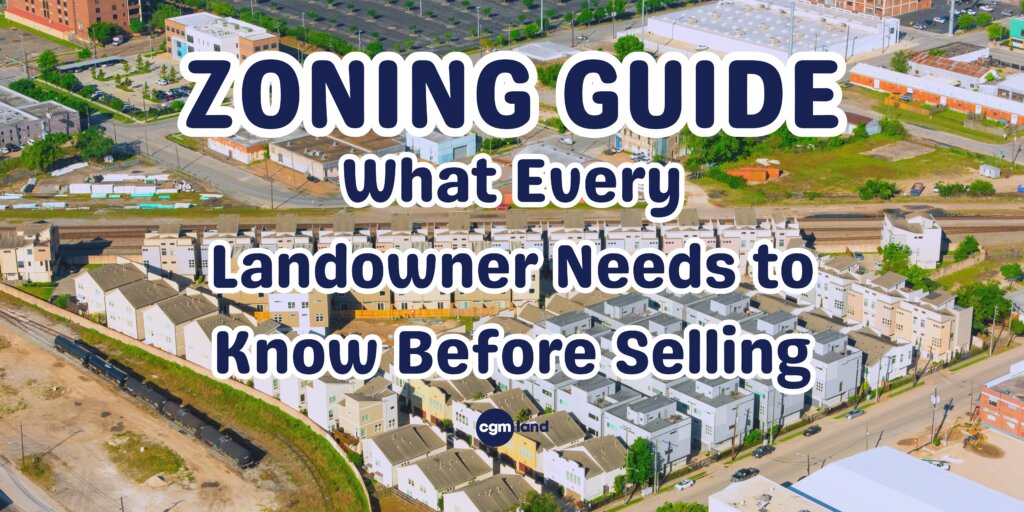
Zoning laws can significantly impact your land’s value and its appeal to potential buyers. Understanding these regulations is crucial for maximizing your property’s potential. In this guide, we’ll break down what zoning laws are, how they affect your land sale, and what steps you can take to navigate them.
What Are Zoning Laws?
Zoning laws are local regulations that dictate how a piece of land can be used. They divide land into categories like residential, commercial, agricultural, or industrial. These laws are essential for maintaining organized development and ensuring compatibility between neighboring properties.
Types of Zoning Categories
- Residential Zoning: For single-family homes, apartments, and condos. Specifics may include minimum lot sizes, building heights, or setbacks.
- Commercial Zoning: For businesses, including offices, retail shops, and restaurants. These zones often have parking and signage requirements.
- Agricultural Zoning: Designed for farming activities. These zones often restrict non-agricultural development to preserve farmland.
- Industrial Zoning: For factories, warehouses, and heavy manufacturing. These zones may have environmental or noise restrictions.
- Mixed-Use Zoning: Allows for a combination of residential and commercial uses, such as live/work spaces.
Why Zoning Matters When Selling Land
- Determines Buyer Interest: The zoning category dictates the pool of potential buyers, such as developers, business owners, or individuals.
- Affects Market Value: Land zoned for commercial or mixed-use purposes typically has a higher value than residential or agricultural land.
- Limits Development Potential: Buyers will evaluate what they can legally do with the land, making zoning a critical factor in their decision.
Steps to Navigate Zoning Laws
- Check Your Zoning Designation: Visit your local planning office or access their online resources to determine your land’s zoning classification.
- Understand Restrictions: Learn what is permitted under the current zoning, including building types, lot sizes, and use limitations.
- Apply for Rezoning or Variances: If your zoning limits your land’s value, consider applying for rezoning or a variance to expand potential uses.
- Highlight Zoning Benefits in Your Listing: If your land’s zoning has advantages (like commercial potential), ensure it’s prominently displayed in your marketing materials.
How CGM Land Handles Zoning
At CGM Land, we specialize in buying land across all zoning categories. Whether your property is residential, agricultural, or commercial, we offer fair cash offers and handle the complexities of zoning for you.
Ready to Sell Your Land Without Worrying About Zoning Laws?
Let CGM Land simplify the process for you. We buy land in any zoning category and ensure a smooth, hassle-free sale.
Get Your Cash Offer Now or call us at 813-522-5366 to see how easy selling your land can be.

